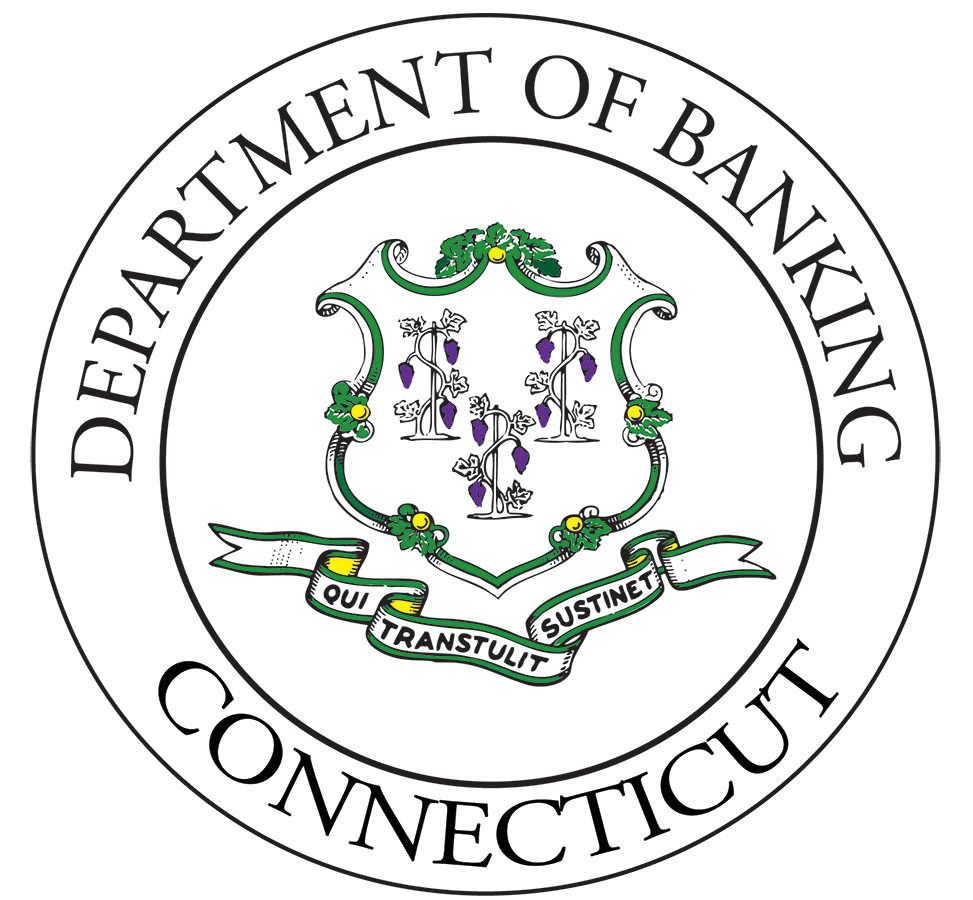2017 Banking and Related Legislation
Each year, the Department of Banking (DOB) conducts an active legislative program coordinated by the Government Relations and Consumer Affairs Division. The DOB pursued an ambitious agenda during the 2017 session. The legislative package was designed to enhance consumer protections and create the ability for the agencies to achieve efficiencies to better carry out its mission. Below are highlights of the agency bills passed.
Please note that the hyperlinks for the bill lead to the Connecticut General Assembly website. These links provide you with a copy of the Public Act and more detailed legislative summary of each bill.
Department of Banking Proposals
Public Act 17-38 - SB-906, An Act Concerning Lead Generators of Residential Mortgage Loans
-
establishes licensure requirements and sets fees for initial licenses and renewals;
-
establishes related record keeping and notification requirements for licensees;
-
requires lead generators to include a disclosure statement in their residential mortgage loan advertisements and lead solicitations; and
-
gives the Banking Commissioner investigatory and enforcement authority over licensees, including allowing him to take certain disciplinary actions against licensees who fail to comply with the bill's requirements.
Effective Date: October 1, 2017, except (1) January 1, 2018 for provisions on lead generator prohibited conduct and (2) upon passage for the repeal of the department's obsolete annual reporting requirement.
Public Act 17-233 - HB-7141, An Act Concerning Secured and Unsecured Lending
-
applies certain mortgage servicers' and student loan servicers' prohibited acts to other licensees;
-
requires nondepository licensees to establish, enforce, and maintain policies and procedures that are reasonably designed to achieve compliance with applicable laws and regulations;
-
allows the Banking Commissioner to require the use of electronic bonds to participate in the Nationwide Multi-state Licensing System;
-
reduces the pre-licensing education requirements for mortgage loan originators, loan processors, and underwriters and establishes when the education requirements must be retaken;
-
allows the Commissioner to provide certain notices to licensees by personal delivery (i.e., email) and establishes when such a notice is deemed received; and
-
sets limits for money transmitters regarding virtual currency transactions and timeframes for remitting money.
Public Act 17-236 - HB-7019, An Act Concerning The Department Of Banking's Enforcement Authority, The Issuance Of Certain Reports, Requiring The Return Of Certain Portions Of Security Deposits And Making Minor Revisions To The Banking Statutes
-
increases, from 20 to 25 years, the maximum maturity period Connecticut credit unions can establish for second mortgages and mobile home loans and updates the approval process for changes to their bylaws (Sections 2 & 3);
-
adds to the documentation a bank must file with the Commissioner as part of its annual audit (Section 4);
-
expands the definition of "sales finance company" to include persons who transfer interest in retail installment or installment loan contracts but continue servicing such contracts or loans (Section 12);
-
requires money transmission licensees to establish an anti-money-laundering program with specific features, such as an independent audit function to test the program's effectiveness (Section 13);
-
requires consumer collection agencies to have a minimum tangible net worth of $50,000 before licensure and prohibits them from retaining unlicensed consumer collection agencies (Sections 14 & 15);
-
authorizes the Banking Commissioner to impose a fine of up to $100,000 per violation on any person who engages in dishonest or unethical practices (Section 16);
-
requires landlords, at the tenant's request, to return any security deposit that exceeds one month's rent if the tenant turned age 62 after paying the deposit (Section 17).

